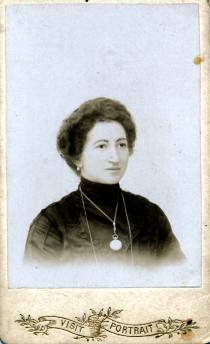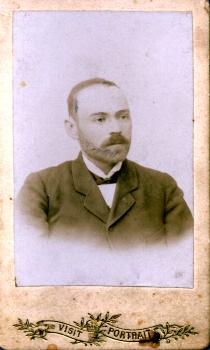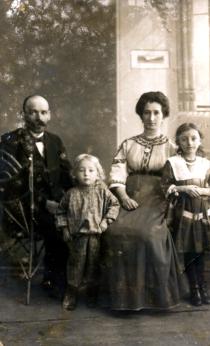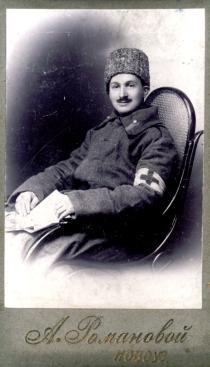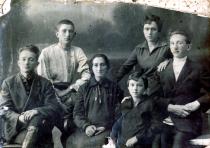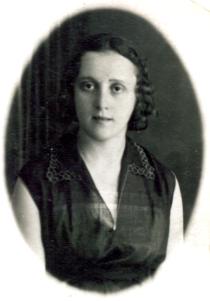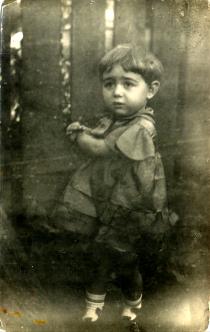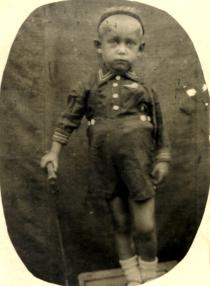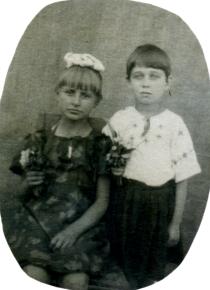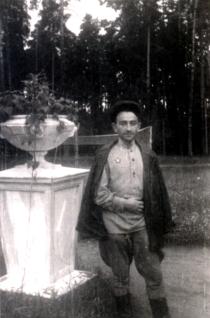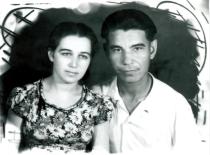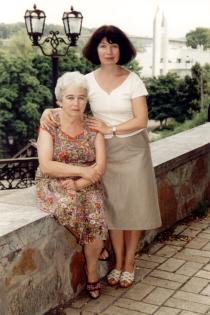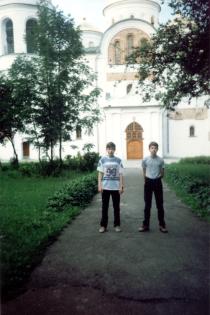My grandmother Pesia Ostrovskaya, nee Fridkina, photographed during her visit to some acquaintances in Kiev. The picture was taken in the Visit Portrait Studio in the 1910s.
Before the Revolution of 1917 my mother's family lived in the small village of Kalygarka in Kiev region. I don't know anything about this village. My grandfather was born in the 1880s. He was a forest warden. My grandmother was also born in the 1880s and came from a wealthy merchant's family. Her father, Morduch Fridkin, was a grain dealer. Grandmother Pesia was educated at home like all Jewish girls. She could read and write in Yiddish, knew prayers by heart and was good at housekeeping. She had brothers and sisters, but I only knew one of them: her brother Isaac. I liked to look at his photograph. He was a courageous military man with a red cross on his sleeve. He was photographed when he served in the tsarist army in 1915. He was an assistant doctor. Isaac disappeared during World War I. He must have perished. One of my grandmother's sisters - unfortunately, I don't even know her name - lived in Chernigov and my grandparents often visited her.
My grandfather's family was very religious. They observed all Jewish traditions. My grandfather had a number of religious books. He prayed every day, wore a kippah at home and a hat when he went out. My grandmother either wore a lace shawl or a wig to cover her head, according to Jewish laws. She told me that the family celebrated Sabbath and followed the kashrut. They had beautiful kosher crockery that my grandmother took out for Pesach. They celebrated all Jewish holidays, fasted on Yom Kippur and taught their children all Jewish traditions.
Their peaceful life ended in 1917 when the Revolution took place and was followed by the Civil War. Gangs attacked their neighborhood and carried out pogroms. My grandfather's family found shelter in Ukrainian families. My grandfather's house was robbed. The bandits broke their beautiful kosher crockery and took away the silver tableware. But this wasn't the most terrible thing that happened. This disaster was a hard blow to my grandfather. He fell very ill and died in 1919 from a broken heart, as they called it in his time, or, from infarction to use a more modern language. I've never been to his grave, but I think he was buried in the Jewish cemetery in Kalygarka and that there was a Jewish funeral. It couldn't have been otherwise back then, particularly in religious Jewish families. My grandmother sold what was left and moved to Chernigov with her four children.

